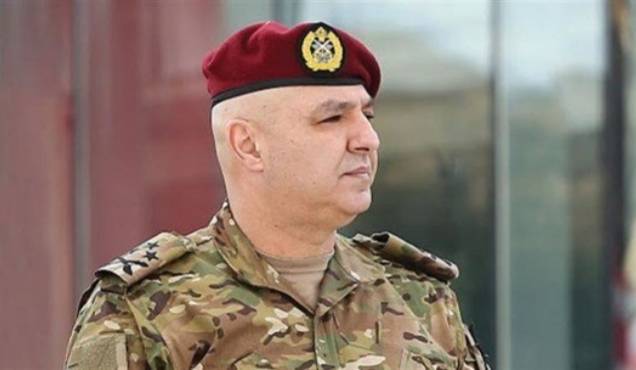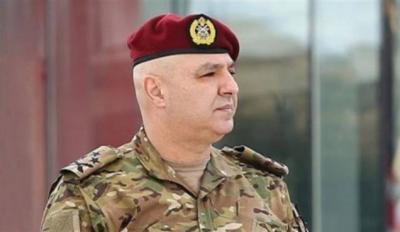"If it turns out that his chances are advanced, then we will certainly support him," this is how the head of the Lebanese Forces Party, Samir Geagea, expressed his position on the nomination of Army Commander General Joseph Aoun. It seems that the option of nominating the Army Commander could embarrass the coalition aligned with Hezbollah, which seeks to bring a politically closer figure, such as the leader of the Marada Movement, Suleiman Franjieh, who is being strongly promoted.
Despite the heated presidential battle that is beginning to cast shadows with the remaining time until the end of President Michel Aoun's term, there are other urgent issues such as the current circumstances and escalating crises, especially if a government is not formed within the constitutional timeframe. Nonetheless, electing a new president remains one of the main points for any settlement related to the Lebanese arena, whether regional, international, or even local.
In line with what Geagea stated, there are diplomatic facts that suggest there is no exit from the crisis except by appointing someone from an institution that enjoys the trust of various forces. According to information from American and French diplomats, the candidate for the next presidency from these two countries is General Joseph Aoun, and this is proceeding according to an American-European agreement that will progressively activate over the coming months in coordination with the five countries, in addition to Germany.
Additionally, a diplomatic source told "Akhbar Al-Yawm" agency that the arrival of a non-partisan president who enjoys good relations with all political forces without exception and has undeniable popular acceptance and ties with all Eastern and Western forces will significantly contribute to resolving Lebanon's crises. The Army Commander possesses these qualifications, which resonate with the current Western desire. The source continued that the regional settlement is progressing slowly, yet it remains the only available and internationally acceptable path, and there is a need to reach a consensus president, not one aligned with Hezbollah, as is the case with President Michel Aoun, indicating that this matter awaits a resolution from influential Western circles.
Internally, the reformist forces are still fragmented, similar to their situation in recent past elections. However, the leader of the Progressive Socialist Party, Walid Jumblatt, seems to be cautious, as he previously announced weeks ago that he does not agree to elect a president from the March 8 Alliance. Still, he has not joined Geagea in supporting the Army Commander yet, unless this is complemented by significant parties and political forces that are likely to receive the majority of parliamentary support.




